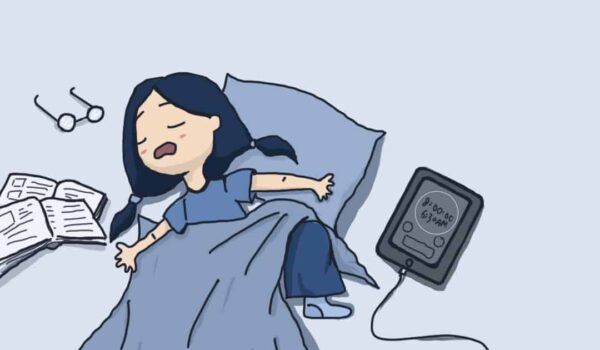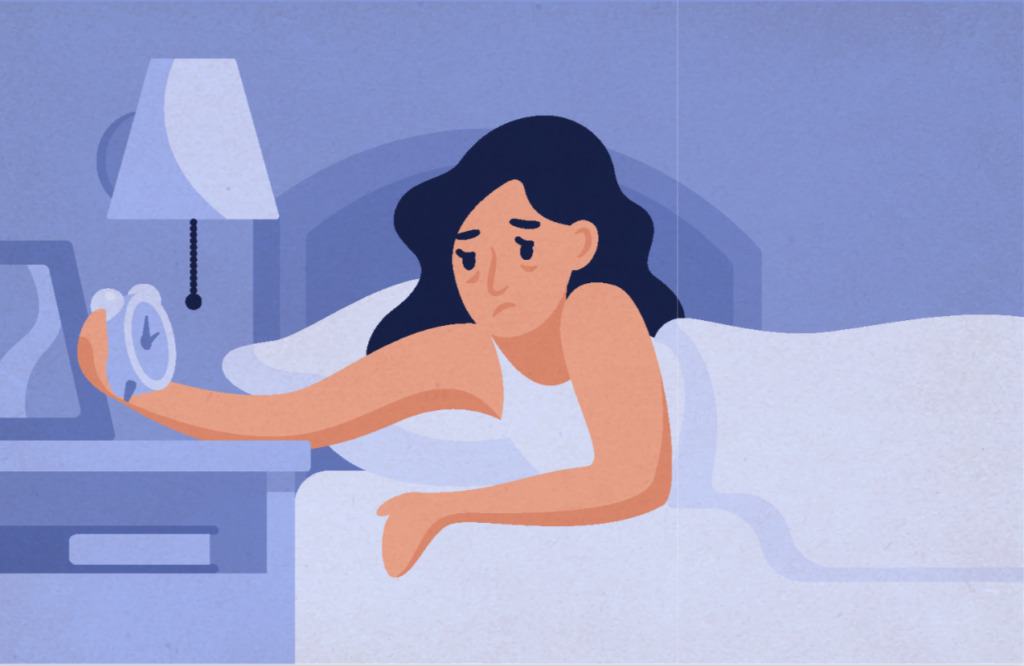How Sleep Affects Mental Health?

Sleep is a fundamental biological process essential for overall health and well-being. It is during sleep that the brain and body repair, regenerate, and recalibrate after the stresses of the day. Increasingly, research has illuminated the significant impact sleep has on mental health, showing how sleep affects mental health in profound and multifaceted ways. This article delves into the psychological perspective on how sleep affects mental health, discussing the intricate relationship between sleep patterns and various mental health disorders, as well as the mechanisms that underlie these connections.
Understanding Sleep and Its Stages

Before exploring how sleep affects mental health, it is crucial to understand the different stages of sleep and their functions. Sleep occurs in cycles, typically lasting about 90 minutes, and is divided into two main types: Rapid Eye Movement (REM) sleep and Non-Rapid Eye Movement (NREM) sleep. NREM sleep is further divided into three stages: N1, N2, and N3.
- N1 (Light Sleep): The first stage of sleep, where one is easily awakened.
- N2 (Intermediate Sleep): A deeper sleep, where the body starts to relax, and brain activity slows down.
- N3 (Deep Sleep): This is the deepest and most restorative stage of sleep, crucial for physical repair and immune function.
- REM Sleep: This stage is associated with vivid dreaming and is crucial for emotional regulation, memory consolidation, and learning.
Each of these stages plays a role in different aspects of mental and physical health. Disruptions to these sleep cycles can lead to a range of psychological issues, highlighting how sleep affects mental health.
The Connection Between Sleep and Mental Health

The relationship between sleep and mental health is bidirectional. Poor sleep can contribute to the development and exacerbation of mental health disorders, while mental health conditions can lead to disturbed sleep. Understanding how sleep affects mental health requires exploring both sides of this equation.
1. Sleep Deprivation and Cognitive Function
One of the most immediate and noticeable effects of poor sleep is impaired cognitive function. Sleep deprivation affects attention, memory, decision-making, and problem-solving abilities. When individuals do not get adequate sleep, the prefrontal cortex—responsible for higher-level cognitive processes—becomes less efficient. This impairment can lead to difficulties in daily functioning, increased stress, and a greater likelihood of developing mental health disorders.
Chronic sleep deprivation can result in long-term cognitive deficits, making it harder for individuals to manage their emotions and cope with stress. This explains how sleep affects mental health by impairing the brain’s ability to regulate emotions and maintain psychological resilience.
2. Sleep and Emotional Regulation
Emotional regulation is another critical area where sleep plays a pivotal role. Research shows that sleep, particularly REM sleep, is vital for processing emotions and managing emotional responses. During REM sleep, the brain processes emotional experiences from the day, which helps individuals regulate their emotional responses upon waking.
When sleep is disrupted, emotional processing becomes impaired, leading to increased emotional reactivity, irritability, and mood swings. For instance, studies have found that sleep-deprived individuals are more likely to overreact to negative stimuli and have difficulty managing stress. This heightened emotional sensitivity illustrates how sleep affects mental health by making it more challenging to regulate emotions and maintain emotional stability.
3. Sleep and Mood Disorders
Mood disorders, such as depression and anxiety, are closely linked to sleep disturbances. In fact, insomnia and hypersomnia (excessive sleep) are often considered core symptoms of these conditions. To understand how sleep affects mental health in the context of mood disorders, it is essential to explore the role of neurotransmitters and hormones.
- Depression: People with depression often experience insomnia or hypersomnia. Disrupted sleep patterns exacerbate depressive symptoms by interfering with the regulation of serotonin, a neurotransmitter that plays a key role in mood stabilization. Lack of sleep also affects the hypothalamic-pituitary-adrenal (HPA) axis, increasing cortisol levels and perpetuating feelings of sadness and hopelessness. This vicious cycle shows how sleep affects mental health by contributing to the onset and persistence of depressive episodes.
- Anxiety: Anxiety disorders are similarly affected by sleep disturbances. Insomnia is a common symptom of anxiety, with individuals experiencing racing thoughts and an inability to relax before bed. The sleep deprivation caused by anxiety can, in turn, heighten feelings of anxiousness, creating a feedback loop that worsens the condition. This cycle highlights how sleep affects mental health by fueling the anxiety-sleep disturbance relationship.
4. Sleep and Stress
Stress and sleep have a complex and reciprocal relationship. High levels of stress can lead to difficulty falling asleep, staying asleep, or waking up too early, which in turn reduces the quality of sleep. Conversely, poor sleep can make individuals more vulnerable to stress, reducing their ability to cope with daily challenges.
From a psychological standpoint, stress activates the sympathetic nervous system, leading to increased arousal and hypervigilance. This heightened state of alertness makes it difficult to achieve restorative sleep, particularly deep NREM sleep, which is essential for recovery from stress. Understanding how sleep affects mental health requires recognizing that the lack of restorative sleep impairs the brain’s ability to downregulate stress responses, leading to chronic stress and burnout.
5. Sleep and Cognitive Behavioral Therapy (CBT)
Given the strong connection between sleep and mental health, sleep-focused interventions have become an integral part of psychological treatment. Cognitive Behavioral Therapy for Insomnia (CBT-I) is an evidence-based treatment that focuses on changing negative thought patterns and behaviors related to sleep.
CBT-I aims to break the cycle of insomnia by addressing the underlying psychological factors contributing to poor sleep, such as anxiety and rumination. By improving sleep quality, CBT-I helps individuals manage their mental health more effectively. This therapeutic approach underscores how sleep affects mental health and demonstrates the importance of treating sleep disturbances as part of a holistic mental health strategy.
Sleep and Specific Mental Health Disorders

Different mental health disorders are uniquely impacted by sleep disturbances. Examining how sleep affects mental health across various conditions provides further insight into this complex relationship.
1. Bipolar Disorder
Bipolar disorder is characterized by extreme mood swings, including periods of mania (high energy and euphoria) and depression (low energy and sadness). Sleep disturbances are a hallmark feature of bipolar disorder and are closely linked to mood episodes.
- Mania: During manic episodes, individuals with bipolar disorder often experience reduced need for sleep, which can exacerbate manic symptoms and lead to impaired judgment and risky behaviors.
- Depression: In contrast, depressive episodes are often accompanied by hypersomnia or insomnia, contributing to feelings of fatigue and low motivation.
The disruption of circadian rhythms (the body’s internal clock) in bipolar disorder highlights how sleep affects mental health by destabilizing mood regulation and perpetuating the cycle of mood swings.
2. Post-Traumatic Stress Disorder (PTSD)
Post-Traumatic Stress Disorder (PTSD) is a mental health condition triggered by experiencing or witnessing a traumatic event. One of the core symptoms of PTSD is sleep disturbances, particularly nightmares and insomnia. These sleep issues often stem from hyperarousal, a state of increased alertness that makes it difficult for individuals with PTSD to relax and fall asleep.
Sleep disruptions in PTSD can further exacerbate the condition by reinforcing the traumatic memories and increasing emotional distress. Addressing sleep problems is therefore a critical component of PTSD treatment, as improving sleep quality can help reduce the severity of PTSD symptoms. This demonstrates how sleep affects mental health in the context of trauma recovery.
3. Schizophrenia
Schizophrenia is a severe mental health disorder characterized by hallucinations, delusions, and disorganized thinking. Sleep disturbances, particularly disruptions in REM sleep, are common in individuals with schizophrenia. These sleep problems can contribute to cognitive impairments, emotional dysregulation, and worsening of psychotic symptoms.
Research suggests that sleep disturbances in schizophrenia may be linked to abnormalities in neurotransmitter systems, particularly dopamine, which plays a role in both sleep regulation and the development of psychotic symptoms. This connection highlights how sleep affects mental health by influencing the severity of symptoms in psychotic disorders.
The Role of Circadian Rhythms
Circadian rhythms, the body’s natural 24-hour internal clock, play a crucial role in regulating sleep-wake cycles. These rhythms are influenced by environmental cues, such as light and temperature, and are essential for maintaining healthy sleep patterns. When circadian rhythms are disrupted—whether due to shift work, jet lag, or irregular sleep schedules—the impact on mental health can be significant.
Disruptions to circadian rhythms can lead to mood disturbances, cognitive impairments, and increased risk of developing mental health disorders. For example, individuals with delayed sleep phase syndrome (a circadian rhythm disorder where sleep is delayed by two or more hours) often experience depression and anxiety. This further emphasizes how sleep affects mental health by illustrating the importance of maintaining regular sleep patterns.
Sleep Hygiene: Promoting Better Sleep for Mental Health

Given the profound ways in which sleep affects mental health, adopting good sleep hygiene practices is essential for promoting mental well-being. Sleep hygiene refers to the behaviors and environmental factors that contribute to high-quality sleep. Below are key strategies to improve sleep hygiene:
- Establish a Consistent Sleep Schedule: Going to bed and waking up at the same time every day helps regulate circadian rhythms and promotes more restorative sleep.
- Create a Relaxing Bedtime Routine: Engaging in calming activities, such as reading or practicing mindfulness, before bed can signal to the brain that it is time to wind down.
- Optimize the Sleep Environment: Ensuring that the bedroom is cool, dark, and quiet can enhance sleep quality. Using blackout curtains and white noise machines can help create a sleep-conducive environment.
- Limit Stimulants Before Bed: Avoiding caffeine, nicotine, and heavy meals in the hours leading up to bedtime can prevent disruptions to sleep.
- Manage Stress and Anxiety: Techniques such as deep breathing exercises, meditation, and journaling can help reduce pre-sleep anxiety and promote relaxation.
- Limit Screen Time: The blue light emitted by phones, tablets, and computers can interfere with the production of melatonin, a hormone that regulates sleep. Limiting screen time before bed can help improve sleep quality.
By implementing these strategies, individuals can improve their sleep patterns and, in turn, enhance their mental health. These practices highlight the importance of understanding how sleep affects mental health and taking proactive steps to maintain good sleep hygiene.
Conclusion
The connection between sleep and mental health is both complex and profound. From cognitive function and emotional regulation to the development and exacerbation of mental health disorders, sleep plays a pivotal role in psychological well-being. Understanding how sleep affects mental health requires a comprehensive exploration of the mechanisms underlying this relationship, as well as the specific ways in which different mental health conditions are impacted by sleep disturbances.
By prioritizing good sleep hygiene and addressing sleep issues through therapeutic interventions like CBT-I, individuals can take important steps toward improving both their sleep quality and mental health. Ultimately, recognizing the critical role of sleep in mental well-being underscores the importance of treating sleep as a fundamental pillar of psychological health.
Through ongoing research and increased awareness of how sleep affects mental health, both individuals and mental health professionals can better address the challenges posed by sleep disturbances and work towards holistic approaches to mental health care.
